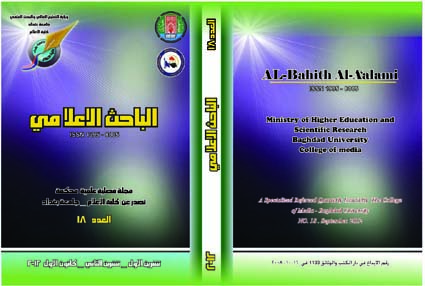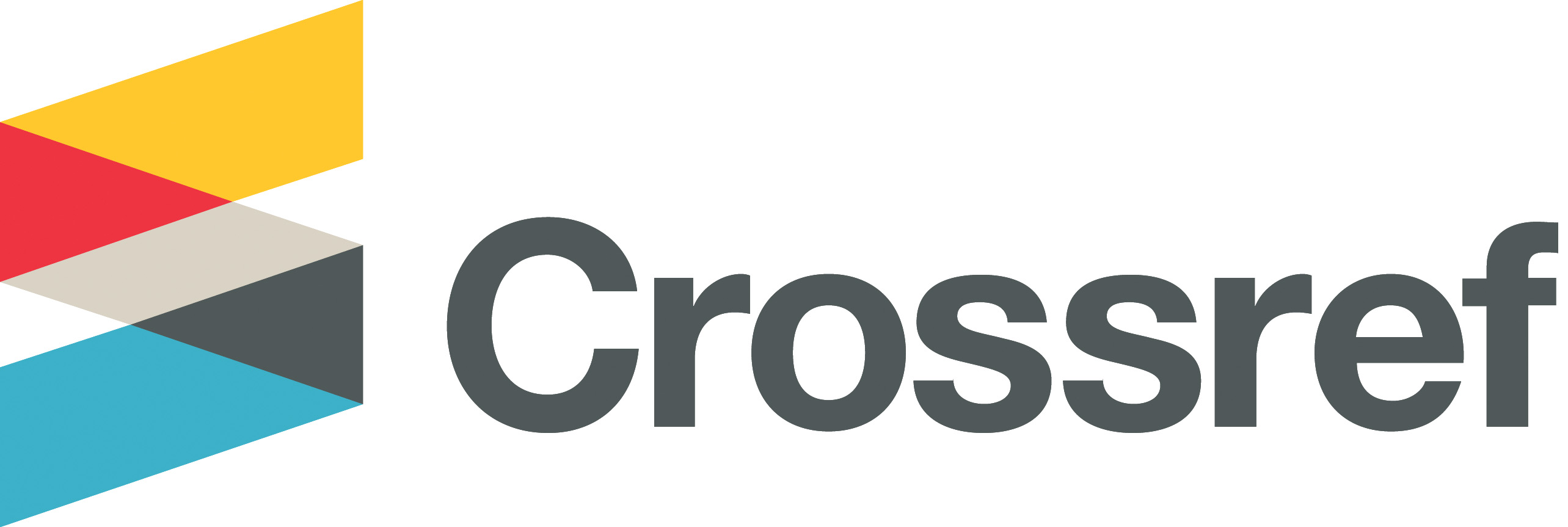The Role of Social Media in Changing Media
DOI:
https://doi.org/10.33282/abaa.v4i18.793Keywords:
Social Media Sites, Theoretical Approach, Social Determinism, Technical Determinism, Alternative Media.Abstract
Media theories and studies have provided many diligences on the concept of social media and the circle of influence, including the theory of social marketing which deals with how to promote ideas espoused by the elite in a society to become a recognized social value. The emergence of social networks provided a revolutionary breakthrough, taking the media to unprecedented horizons; and giving its users great opportunities to influence and move across borders without restrictions and censorship, except in a relatively limited manner.
So, the emergence of social media has created channels of live broadcasting from its audience in a method of development that changes the essence of the known communication theories; and stops the monopoly of the media message industry to convey it to a broader and more comprehensive range, with an influential and interactive capacity that communication experts have not imagined.
Therefore, the reform and change movements in our Arab and Islamic world are invited, today, to take advantage of the internet revolution to the maximum extent in the fields of organization, administration, communication, media, political struggle and other aspects of life. Can we understand the historical significance of the internet revolution?
Referring to the international experiences in the cases of “Tunisia and Egypt”, the media, according to the social marketing theory, raises awareness among the public - through media campaigns that aim to intensify knowledge to modify behavior by increasing the information sent - to influence the targeted sectors of the public. The media, as well, supports media messages by personal contacts; and continues to present messages in the means of communication. Then, the public becomes interested in the formation of a mental image through information and ideas. Right here, the contactor seeks to form that mental image to link the subject with the interests of the public and its aspirations.
In a later step, the organizer begins designing new messages to reach more specific behavioral outcomes as an instance making a decision. Then, it comes the stage of creating specific events to ensure continued interest in a topic, and cover those specific events on the level of media and masses. Afterwards, it is time to urge the public to take an exact action expressing the idea by advocating the adoption of ideas in which communication messages are focused.
As a result, who makes the change?
The question that must be answered after the repetition of the Tunisian scene in Egypt and the expansion of the “Atlas of Arab Popular Uprisings” is: Does the media play a supporting role in social change by strengthening the public sphere?
Downloads
References
2- جون هارتلي وآخرون،((الصناعات الإبداعية))، ترجمة: بدر السيد سليمان الرفاعي، الكويت، عالم المعرفة، 2007م، ج1.
3- د.عبد الغني عماد، ((سوسيولوجيا الثقافة- المفاهيم والإشكاليات من الحداثة إلى العولمة))، بيروت، مركز دراسات الوحدة العربية.
4- زاهر راضي، ((استخدام مواقع التواصل الاجتماعي في العالم العربي))، مجلة التربية، ع15 ، جامعة عمان الأهلية، عمان، 2003م.
5- د. عباس مصطفى صادق، ((الاعلام الجديد: المفاهيم والوسائل والتطبيقات))، عمان، دار الشروق، 2008م.
6- أولجا جوديس بيلي، بيلي كاميرتس، نيكوكاربنتيير، ((فهم الإعلام البديل))، ترجمة: علا أحمد إصلاح، القاهرة، مجموعة النيل العربية، 2009م.
7- د. مي العبد الله، (( الاتصال والديمقراطية))، بيروت، دار النهضة العربية،2005م.
8- د. نصر الدين لعياضي، ((الرهانات الابستمولوجية والفلسفية للمنهج الكيفي/ نحو أفاق جديدة لبحوث الإعلام والاتصال في المنطقة العربية))، أبحاث المؤتمر الدولي، "الإعلام الجديد: تكنولوجيا جديدة... لعالم جديد"، جامعة البحرين، من 7-9 ابريل 2009م.
9- د. عزة مصطفى الكحكي، ((استخدام الانترنت وعلاقته بالوحدة النفسية وبعض العوامل الشخصية))، أبحاث المؤتمر الدولي، "الإعلام الجديد: تكنولوجيا جديدة... لعالم جديد"، جامعة البحرين، من 7-9 ابريل 2009م.
10- د. بهاء الدين محمد مزيد، ((المجتمعات الافتراضية بديلاً للمجتمعات الواقعية/ كتاب الوجوه نموذجاً))، جامعة الامارات العربية المتحدة، 2012م.
11- د.علي محمد رحومة،((الانترنت والمنظومة التكنو-اجتماعية))، بيروت، مركز دراسات الوحدة العربية، 2007م.
12- سعد الدين ابراهيم، ((عوامل قيام الثورات العربية))، مجلة المستقبل العربي، ع. 399، مايو 2012م.
13- نديم منصوري، ((دور الإعلام التواصلي الجديد في تحريك الثورات العربية))، جريدة الأخبار، ع. 1670، 28/03/2012.
14- د.نهوند القادري، ((قراءة في ثقافة الفضائيات العربية الوقوف على تخوم التفكيك))، مركز دراسات الوحدة العربية، بيروت، 2008م.
15- د.جمال الزرن،((تدويل الاعلام العربي، الوعاء ووعي الهوية))، دمشق، دار صفحات، 2007م.
16- روس هاورد، ((الإعلام والانتخابات))، دليل تقرير الانتخابات، كندا: معهد الإعلام والعلوم السياسية والمجتمع المدني IMPACS، مكتبة الارشيف الكندي، 2005م.
17- صاموئيل هنتغتون،(( النظام السياسي لمجتمعات متغيرة))، ترجمة: سمية فلّو عبّود، بيروت، دار الساقي، ط.1، 1993م.
18- د. انتصار ابراهيم عبد الرزاق، د. صفد حسام الساموك، ((لإعلام الجديد: تطور الأداء والوسيلة والوظيفة))، جامعة بغداد، سلسلة مكتبة الإعلام والمجتمع، الدار الجامعية للطباعة والنشر، 2011م.
19- د. قوي بوحنية ، أ. عصام بن الشيخ، ((الرسالة الإعلامية العربية "التغييرية))، وقائع المؤتمر الدولي الـ 17 جامعة فيلادلفيا، عمان، ثقافة التغيير: الأبعاد الفكرية والعوامل والتمثلات، من 6-7-8/11/2012م.
(1) http://computing dictionary.the freedictionary.com/new+media
(2) د. جمال الزرن، ((هندسة المكان الإفتراضي منتجة لخطاب ثقافي))، مدونة مقعد وراء التلفزيون: الإعلام والاتصال والمجتمع. http://www.jamelzran.jeeran.com
(3) د.عبد الله الزين الحيدري،((ما المقصود بالزمن الميدياتيكي؟))، مدونة أجيال.
(4) السيد نجم، « دور الثورة الرقمية في الثورات العربية »، مقال مأخوذ من الرابط التالي: https://groups.google.com/forum/#!msg/fayad61/J
(5) د.سامي نصر،((تحديات الاعلام البديل))،12/1/2008م.
(6) عبد العزيز طرابزوني، "حقيقية الإعلام الجديد في الربيع العربي.. ومستقبله".
http://www.majalla.com/arb/2011/10/article55228614
(7) ياسين النصير، "ثقافة التغيير"، مجلة الرافدين.
http://www.alrafidayn.com/index.php
(8) د. جمال الزرن، "أنسنة" أو الثقافي في تكنولوجيات الاتصال والفضاء العام، مدونة مقعد وراء التلفزيون.
http://www.jamelzran.jeeran.com
Downloads
Key Dates
Published
Issue
Section
License
Copyright (c) 2012 ALBAHITH ALALAMI

This work is licensed under a Creative Commons Attribution 4.0 International License.
Authors retain copyright and grant the journal right of first publication with the work simultaneously licensed under a Creative Commons Attribution License (CC BY 4.0) that allows sharing the work with recognition of authorship and initial publication in ABBA journal.


















